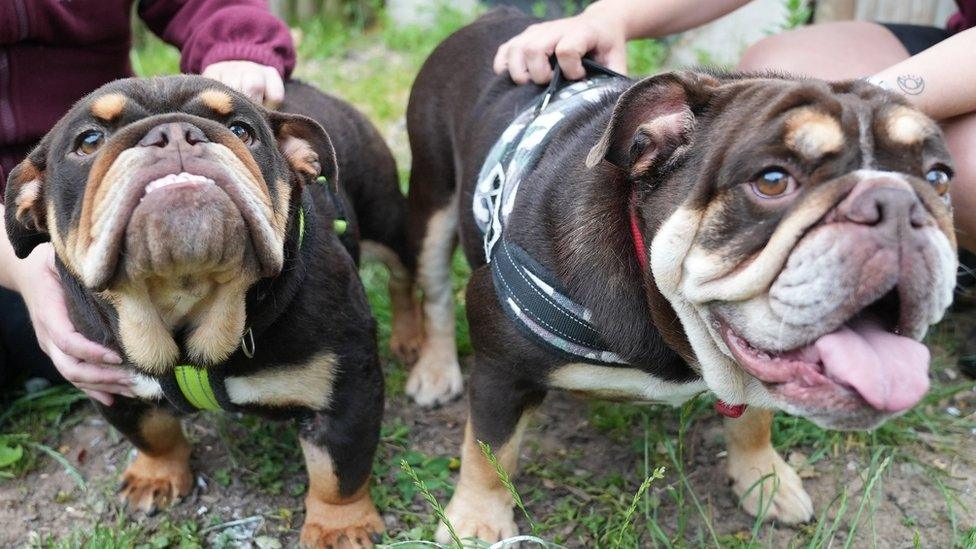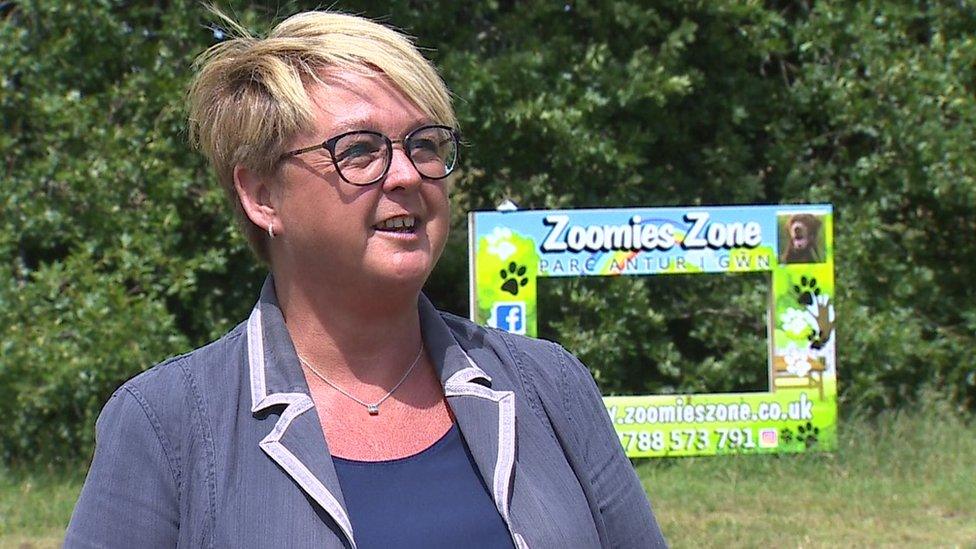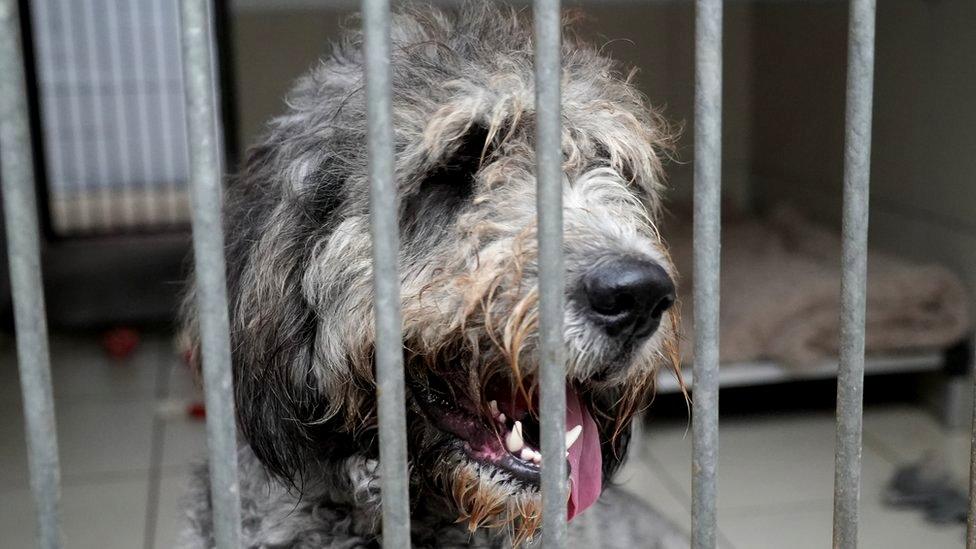Illegal dog breeding investigations rise by 63% in Wales
- Published
The RSPCA says there is an issue in Wales with illegal dog breeding
The number of investigations into illegal dog breeding in Wales rose by 63% last year, figures have shown.
RSPCA Cymru said there were 366 cases being investigated by councils, although prosecutions remained low with figures doubling to just eight.
The rise has been more notable since the pandemic.
The Welsh government said it was supporting councils in tackling illegal dog breeding, including training of more enforcement officers.
Raspberry, a six-month-old English Bulldog, was rescued along with her mother Blackcurrant from an unlicensed breeder.
She has already had an operation to treat a defective soft palate and is expected to suffer with health complications throughout her life.
Both are being cared for by staff at the Hope Rescue centre in Pontyclun, Rhondda Cynon Taf, and are just two of the 219 dogs rescued by this centre alone over the past 12 months.
Previously the number has been closer to 30 dogs per year.
'Explosion in low-welfare breeders'
"Blackcurrant is three years old and has had a number of puppies," said Sara Rosser, head of welfare and adoption at Hope Rescue, which works in partnership with RSPCA Cymru.
"The skin rolls on her head need cleaning or they become infected, she has suffered ear infections and she has also had an operation on her eye since she came here."
She added: "Unfortunately during Covid we had an explosion in low-welfare breeders, but we are thankful that the public seem to be more aware of animal welfare issues and are reporting those concerns."

Raspberry and Blackcurrant are two of the 219 dogs helped by Hope Rescue in Pontyclun in the past year
RSPCA Cymru's figures follow the charity's freedom of information requests to Welsh councils to find out how much of a challenge they are facing
It said the figures may only be the tip of the iceberg when it comes to poor puppy breeding practices in Wales, and is calling for more council investigators and for more irresponsible breeders to be sent to prison.
'Early years are so important'
"There is clearly an issue in Wales," said RSPCA's Chris O'Brien.
"We know that the early years are so important for puppies in terms of their health and development and their future behaviour and so the conditions in these establishments are crucial and it is disturbing to hear that there has been such a big increase in complaints and investigations.
"We've historically had a problem in Wales with poor breeding standards and practices, and while there are good dog breeders out there these statistics show the problem has not gone away. Indeed the problem has escalated to a concerning level through Covid.
"We do have dog breeding laws in Wales, but we want to see those strengthened."
A spokeswoman for Trading Standards Wales, Alison Farrar, said the "lack of prosecutions" does not mean there is a "problem".
"I actually see that as a good thing," she said, "because it's only when things are really bad that you have to get as far as a prosecution.

Alison Farrar says social media influencers are driving demand for dog breeds, with some people paying up to £4,000 for a puppy
"The work of trading standards isn't to go straight for a prosecution," Ms Farrar said, explaining its role is to help "breeders bring their business into compliance".
Ms Farrar said there has been an upsurge in dogs being advertised on social media, including adverts being shared on online groups.
"We want to encourage the public if they see any dogs being advertised anywhere they're not sure we want them to report them to our Crimestoppers line," she said. "We'll go out and check the licensing... things like the microchips on the dogs to make sure that everything is above board."
The Welsh government said its animal welfare plan for 2021-26 outlined the actions it will take.
A spokesman added: "Our new regulations on pet sales which came into force in September 2021 with funding support for enforcement, work alongside the delivery of existing dog breeding regulations, and are already resulting in lasting improvements to the welfare standards of puppies bred in Wales."

BBC WALES INVESTIGATES: The subjects affecting the lives of people in Wales
BROTHERS IN DANCE: The remarkable duo at the forefront of UK dance

Related topics
- Published5 January 2022

- Published23 September 2021

- Published22 July 2021
